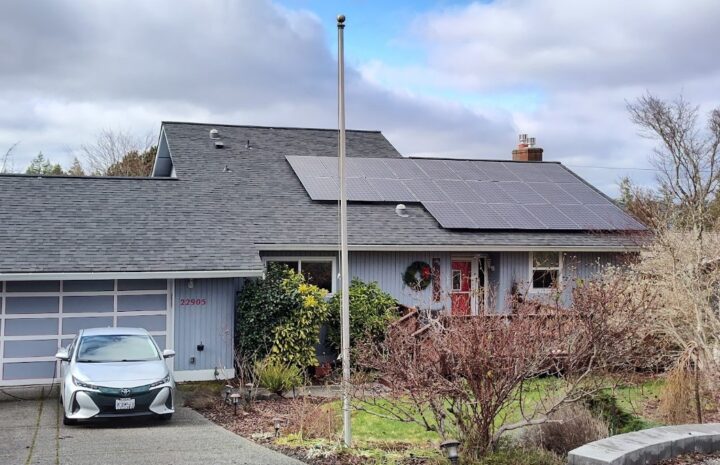When you are able to install solar on your home, you are not only creating clean local carbon-free energy, but you are also saving money on your bill, and helping the local utility to which you are interconnected. While it is true that the utility loses the chance to sell you a kwh for each kwh you produce, they are able to sell the excess power that you may be producing to your neighbors. The Net Metering law protects you as a homeowner and makes certain that you are compensated the full retail price of each kwh you produce, whether you use it yourself, or put it onto the grid. In the absence of a Net Metering contract, the utilities may not give you the fair value for this clean electricity created at the retail location. Not only does this fairly compensate those who install solar, it helps support our society’s goals in terms of reducing carbon-based energy dependence.
Washington has had a strong Net Metering law since 1998, and it has been appropriately updated a couple of times since then as we have learned more, and as solar has become more mainstream. When the Net Metering law is updated, we have also seen that the thresholds for how many net metered systems the utilities have to accept need to be increased. Our Net Metering law is now in dire need of an update again after languishing for the last several years while the legislature has been understandably busy. It is crucial that we update it again this spring to stay in line with the new federal policies and incentives available. Without an update, there will be some utilities, including PSE, which will exceed the required threshold for the amount of net metered systems and have signaled that they will dramatically reduce the compensation to the solar producers.
WASEIA (WA Solar Energy Industry Assoc) has been doing some heavy lifting in this regard for years, which mainly involves educating our legislators and more recently has required rebutting utility-oriented misinformation.
As an interested citizen, if you want to help out or gain better understanding of the issues, getting involved with WASEIA is one of the best ways you can do so. This industry group has recently created an individual membership tier for people to participate and contribute. We recommend you take a look and get engaged through this organization.

19.6 KW Sunpower Array (a portion, sub-array on other side of the east and west facing roof not shown), Poulsbo Residence, PSE Grid, February 2023
We get no compensation for the energy we produce. At the end of each March, PSE steals our banked solar energy and we go back to zero. They don’t give us anything for the extra we produced. Tell me how this is fair? We never would have put solar on our house if this was known.
Hi Tiffany, if you are enrolled in Net Metering, then PSE will certainly be compensating you for the energy you produce up to 100% of what you use each year. It is true that if you have excess solar kwh credits banked at the end of March 31, they will reset your account, and this is within the guidelines of the law. Mar 31 is the best date for that “reset” since you have had all winter to use up the previous summer’s credits.
While it is impossible to size systems precisely or know how you energy use may change over time, we are careful to target no greater than 100% of our clients’ annual usage. We have seen cusotmers lose some credits by having remaining unused kwh on March 31 from the previous summer, but they have not been significant relative to producing the total annual usage. It is vexing but a good problem to have I suppose. In your case, how large is your system, and how many kwh above and beyond your usage did you produce that were zero’d out?